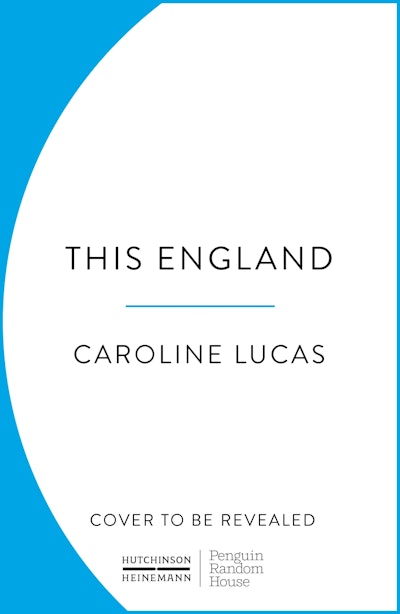- Published: 20 March 2025
- ISBN: 9781804941591
- Imprint: Penguin
- Format: Paperback
- Pages: 320
- RRP: $24.99
Another England
How to Reclaim Our National Story
- Published: 20 March 2025
- ISBN: 9781804941591
- Imprint: Penguin
- Format: Paperback
- Pages: 320
- RRP: $24.99
This is not just an inspiring, nuanced and deeply literate book, but that rarest of things – a necessary one.
JONATHAN COE, author of Bourneville
Timely, passionate and perceptive . . . Another England tells a new story about England and Englishness, and sets out the possibility for a progressive politics of land, place and nation. This is vital reading.
ROBERT MACFARLANE, author of Underland and The Lost Words
Another England makes the compelling case that progressives need not shy away from talk of Englishness. Eloquent and persuasive, it offers a powerful new perspective on how we might make our national stories fit for the twenty-first century.
JON SNOW, former Channel 4 News presenter
An urgent, vital book for our fractured nation . . . By showing us the alternatives in our past, Caroline points to alternatives in our future . . . stories that must be heard more urgently than ever.
NICK HAYES, author of The Book of Trespass
Essential and magnificent. This book fills a yawning gap, showing how we can create the progressive and inclusive sense of Englishness this country so urgently needs.
GEORGE MONBIOT, author of Regenesis
Another England is a visionary book, and it’s also written in the clearest, plainest, and most eloquent prose . . . The author’s awareness of the complex fullness of our history is steeped in the language and the landscape, and she sees all the more clearly because of it. I was profoundly impressed.
PHILIP PULLMAN, author of His Dark Materials
Uncomfortably honest and true . . . Another England is a book we need at this critical time when so much seems lost, when we have become so divided, and so hopeless.
MICHAEL MORPURGO, former Children’s Laureate
Deft and wonderfully poetic . . . A fascinating and thoughtful reflection on one of the most fraught and important issues of our time.
GRACE BLAKELEY, author of Vulture Capitalism
Progressives have for too long treated the idea of an English national identity as an embarrassment, allowing the Right to create and exploit a narrow and chauvinistic version of collective belonging. In this vivid and invigorating book, Caroline Lucas shatters these distorting mirrors and reveals a much more interesting and complex picture of Englishness . . . Engaging, illuminating and ultimately uplifting.
FINTAN O’TOOLE, author of Heroic Failure
Caroline Lucas brilliantly draws together the narrative threads of our national stories to define some clear blue water between the British state and an England capable of being inclusive and forward looking, while at the same time bearing the weight of its own history.
BILLY BRAGG, musician
We can make England brutal or beautiful. To understand the choice and how we make the right one together, read Another England, a wonderful and timely book on the country we can still be.
NEAL LAWSON, Director of Compass
In Another England, Caroline Lucas sets out to start a conversation about ‘what it means to be English’. As such, it provides a remarkably inspiring foundation for such a conversation . . . I absolutely loved it.
JONATHON PORRITT, former leader of the Green Party
Caroline Lucas is a shining light of integrity and values-based politics . . . This is a clarion call to define England and Englishness as our common ground, and a grounding for a transformation of politics and society.
KATE PICKETT, co-author of The Spirit Level
Insightful, inspiring and highly readable, in this book Caroline Lucas invites us to ask ourselves a long overdue question: what type of country do we actually want to be?
KOJO KORAM, author of Uncommon Wealth
Poetic and clear-sighted, romantic and analytical, principled and open-minded. There’s no other politician quite like Caroline Lucas . . . She's dug into the soil of England to find a progressive patriotic vision for the twenty-first century. What she discovers is profound, hopeful and radical. A brave and vital book.
IAN DUNT, author of How Westminster Works . . . and Why It Doesn’t
Combines a love of English literature and its role in telling the story of England with what's gone wrong in politics . . . A very interesting book.
ALASTAIR CAMPBELL, The Rest Is Politics
A progressive vision of the country’s literary and cultural history from the trailblazing MP . . . [Offers] much needed crumbs of hope for the future.
GUARDIAN
I love Caroline Lucas taking her own independent-minded journey into finding a better political future for England through its mythical and literary past.
SAMIRA AHMED
While patriotism might now provoke connotations of empire or Brexit, the former Green Party leader offers a different outlook by drawing on some more joyful aspects of the nation’s past. A perfect read for a divided Britain.
iNews
Not just another book by another politician; if only more departing MPs would write about Elizabeth Gaskell’s Mary Barton (1848) and John Wyndham’s The Kraken Wakes (1953) . . . Lucas’s strength as a writer—and perhaps also as a politician—is her fierce reasonableness.
PROSPECT
Rather than toss out the national story, Lucas reads a more radical one between the lines . . . She cleverly deploys Elizabeth Gaskell, John Clare and Charles Dickens to demonstrate that a culture can be diverse and coherent, innovative and rooted; many stories told in one beautiful language. Blending art with political analysis, Lucas writes far more forcibly than authors of Left and Right who think a nation is defined entirely by its constitutional order, or that if the party they happen to support isn’t in power, England is lost for good.
TIM STANLEY, DAILY TELEGRAPH
A lucid insight into the ways the English might cultivate an inclusive ‘national story’. . . . Lucas’ intervention is not only timely, but also imperative . . . Lucas’ evaluation of how we might foster a progressive Englishness is a far more honest, balanced and just approach to nationhood than we see elsewhere in the mainstream political sphere . . . The creation of a collective English story, which stands to represent and benefit all, relies on an open conversation between multiple texts authored by writers of various identities and experiences of the nation. Another England is a valuable contribution to this vital discussion and makes clear the progressive change that can be achieved by championing an Englishness characterised by inclusiveness, solidarity and dissent.
RED PEPPER
Deftly marries the political and the literary . . . Another England is idealistic, naive and freewheeling, as urgent and lively books often are. I loved it.
Books of the Year, SPECTATOR
Whatever your politics, former Green leader Caroline Lucas’s musings on Englishness and national identity are fascinating and provocative.
BOOKS OF THE YEAR, TELEGRAPH
An alternative vision of England to the jingoistic and aggressive one conjured up by culture war squabbles . . . Another England is possible? Well, let’s hope she’s right.
Book of the Month, GUARDIAN





